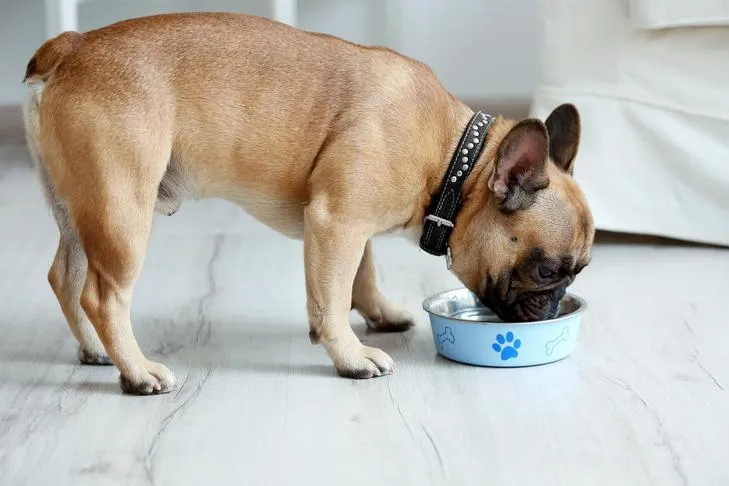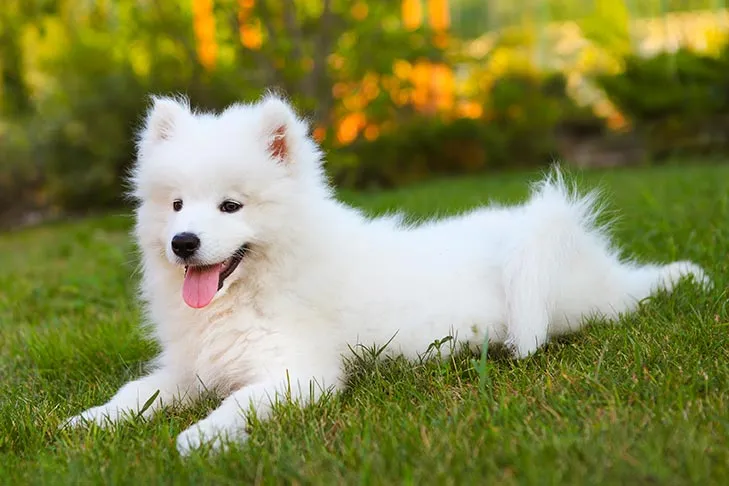Many dog owners find joy in sharing their meals and snacks with their beloved canine companions. It’s a natural instinct to want to treat our furry friends, but it’s crucial to understand that not all human foods are safe for dogs. While some common ingredients can be healthy additions to a dog’s diet in moderation, others can be toxic and lead to serious health issues. Navigating the world of human food for dogs requires knowledge and caution. This guide from Dog Care Story will help you identify What Human Food Can I Give To My Dog safely, ensuring their well-being while still allowing for those special shared moments.
Safe and Nutritious Human Foods for Your Canine Companion
Understanding which human foods are permissible and beneficial is key to responsible pet ownership. Below is a detailed list of foods that are generally safe for dogs, along with important considerations for each.
Grains and Breads
When it comes to grains and bread, simplicity and moderation are paramount.
Bread
Small amounts of plain bread are generally harmless for dogs, provided it is free of spices, particularly garlic and onion, and absolutely no raisins, which are highly toxic. However, bread offers minimal nutritional value and can contribute to excess carbohydrates and calories, potentially leading to weight gain. Homemade bread is often a better choice than store-bought varieties, which frequently contain unnecessary preservatives. It’s best viewed as an occasional treat rather than a regular part of their diet.
Wheat or Grains
Contrary to some popular beliefs, dogs do not inherently need a grain-free diet. Grains like wheat and corn are excellent sources of protein, essential fatty acids, and fiber, contributing positively to a dog’s overall health. If your dog exhibits specific allergies, then consulting your veterinarian about a grain-free diet might be appropriate, but for most dogs, grains are a healthy dietary component.
Fruits and Vegetables
Many fruits and vegetables offer vitamins and fiber that can benefit your dog.
Coconut
This unique fruit contains lauric acid, known for its ability to help combat bacteria and viruses. Coconut can also be beneficial for addressing bad breath and improving various skin conditions, such as hot spots, flea allergies, and general itchy skin. Both coconut milk and coconut oil are safe for dogs. Always ensure to remove the hard, fibrous outer shell, as it can pose a choking hazard or become lodged in their throat.
Corn
Corn is a very common ingredient in many commercial dog foods, highlighting its safety for canine consumption. However, the cob itself can be difficult for a dog to digest and could lead to an intestinal blockage. Therefore, if you are sharing corn with your dog, always ensure it is removed from the cob.
Quinoa
Increasingly, quinoa is being incorporated into high-quality dry dog foods due to its impressive nutritional profile. It serves as a healthy and digestible alternative to common starches like corn, wheat, and soy, which are often used as fillers in kibble.
If you are curious about what veggies can dogs not have, it’s always best to consult reliable sources or your vet to avoid any accidental harm.
Dairy Products
Dairy products can be a tricky area, as some dogs tolerate them better than others.
Cheese
Dogs can enjoy cheese in small to moderate quantities. Most dogs are not lactose intolerant, but some can be, so it’s wise to introduce it slowly. Cheese can be a fantastic high-value treat. Opt for lower-fat varieties such as cottage cheese or mozzarella to avoid excessive fat intake. Many dogs also delight in specialized Himalayan dog chews, which are made from dried cheese, offering a safe and long-lasting treat.
 All American Dog resting its head on the kitchen table looking at cheese.
All American Dog resting its head on the kitchen table looking at cheese.
Milk
While dogs can consume milk, it’s advisable to proceed with caution. Some dogs are lactose-intolerant, meaning their digestive systems do not process milk well, leading to upset stomachs or diarrhea. If you choose to offer a small amount of milk, be observant for any symptoms of intolerance. For most dogs, water remains the best and safest hydration option.
Yogurt
Plain yogurt is an acceptable and often beneficial snack for dogs. For dogs that can digest dairy without issues, the active bacteria in yogurt can provide a boost to their digestive system through probiotics. Always choose plain, unsweetened yogurt and avoid any varieties containing artificial sweeteners, especially xylitol, which is highly toxic to dogs.
Nuts and Seeds
Not all nuts are safe for dogs, so it’s essential to know which ones are suitable.
Cashews
Cashews are safe for dogs, but should only be given in small quantities. They contain beneficial nutrients such as calcium, magnesium, antioxidants, and proteins. Although cashews have less fat than some other nuts, consuming too many can still lead to weight gain. Ensure they are unsalted to avoid excessive sodium intake.
Peanut Butter
Peanut butter can be an excellent source of protein, providing heart-healthy fats, vitamins B and E, and niacin. The healthiest option is raw, unsalted peanut butter. It is critically important to read the label carefully and ensure the peanut butter does not contain xylitol, a sugar substitute that is highly toxic to dogs and can be life-threatening.
Peanuts
Unlike almonds, peanuts are safe for dogs and are rich in good fats and proteins that can benefit your dog’s health. However, like cashews, peanuts should be given in moderation due to their fat content, which can potentially lead to pancreatic issues if consumed in excess. Always opt for unsalted peanuts.
Proteins and Meats
Lean, cooked meats are often excellent sources of protein for dogs.
Eggs
Eggs are a fantastic source of protein for dogs, provided they are fully cooked. Cooked eggs can also be particularly helpful for dogs with an upset stomach. It’s crucial to cook eggs all the way through, as raw egg whites contain avidin, which can contribute to biotin deficiency over time.
Fish (Salmon, Sardines, Tuna)
Fish generally offers good fats and amino acids, providing a healthy boost for your dog.
- Salmon: Cooked salmon is an excellent source of protein, healthy fats, and amino acids. It supports joint and brain health and significantly boosts the immune system. However, raw or undercooked salmon can contain parasites that are extremely dangerous and can cause severe illness, including vomiting, diarrhea, dehydration, and in extreme cases, death. Always ensure salmon is thoroughly cooked.
- Sardines: These small fish are particularly beneficial because their bones are soft and easily digestible, offering an extra boost of calcium.
- Tuna: Dogs can eat tuna in small amounts. Cooked, fresh tuna is a great source of omega-3 fatty acids, which promote heart and eye health. Canned tuna should be given sparingly due to its small amounts of mercury and sodium. If offering canned tuna, ensure it’s packed in water (not oil) and contains no added spices.
As a general rule for fish, always ensure it is fully cooked and cooled. With the exception of sardines, meticulously remove all tiny bones to prevent choking or internal injury. Limit fish intake to no more than twice a week.
Ham
While ham is permissible for dogs in small quantities, it is not the healthiest option. It is typically high in sodium and fat, so while a tiny piece occasionally is acceptable, it should not become a regular habit.
 French Bulldog eating from a bowl at home.
French Bulldog eating from a bowl at home.
Pork
Pork is a highly digestible protein source, rich in essential amino acids. While it contains more calories per pound compared to some other meats, it can be a good option for dogs, especially those with sensitivities to other proteins, as it may be less likely to cause an allergic reaction.
Shrimp
A few shrimp now and then can be a safe treat for your dog. It’s imperative that they are fully cooked and that the entire shell, including the tail, head, and legs, is completely removed. Shrimp are a good source of antioxidants, vitamin B-12, and phosphorus, while being low in fat, calories, and carbohydrates.
Turkey
Cooked turkey is safe for dogs, but you must take precautions. Always remove any excess fat and skin from the meat, and meticulously check for bones. Poultry bones can splinter during digestion, leading to internal blockages or even tears in the intestines. Avoid feeding any turkey that has been seasoned with excessive salt, spices, onions, or garlic, as these can be harmful.
If your dog is sick, understanding what is good to feed a sick dog is crucial for their recovery and comfort.
Other Safe Treats
Some other common pantry items can also be safe for your dog.
Honey
Honey is a powerhouse of nutrients, including vitamin A, potassium, calcium, magnesium, copper, and a variety of antioxidants. Feeding small amounts of local honey to dogs can potentially help with allergies by introducing tiny amounts of pollen, thereby building up their immunity to local allergens. Beyond consumption, honey’s natural antibacterial properties also make it useful as a topical treatment for minor burns and superficial cuts.
Popcorn
Unsalted, unbuttered, and air-popped popcorn can be an acceptable treat for your dog in moderation. It contains riboflavin and thiamine, which support eye health and digestion, as well as small amounts of iron and protein. Ensure all kernels are fully popped before offering them to your dog, as unpopped kernels can pose a choking hazard.
 Samoyed puppy laying in the grass outdoors.
Samoyed puppy laying in the grass outdoors.
Important Considerations and Foods to Avoid
While many human foods can be safely shared with your dog, always remember that moderation is key. Even healthy treats should only make up a small portion of your dog’s overall caloric intake. Their primary nutrition should come from a balanced, high-quality dog food. It’s equally important to be aware that certain human foods are highly toxic to dogs and must be avoided at all costs. These include chocolate, grapes, raisins, onions, garlic, and artificial sweeteners like xylitol. If you’re ever unsure about a specific food or if your dog has eaten something potentially harmful, always consult your veterinarian immediately. For specific breed-related dietary concerns, such as what a Bichon Frise cannot eat, or what should I not feed my bulldog, further research is always recommended.
Conclusion
Sharing human foods with your dog can be a rewarding experience for both of you, strengthening your bond and offering delightful new flavors and textures to their diet. However, this privilege comes with the responsibility of knowing exactly what human food can I give to my dog safely. By sticking to the approved list of foods, preparing them appropriately (cooked, unseasoned, no bones or shells), and serving them in moderation, you can ensure these treats contribute positively to your dog’s health and happiness. Always observe your dog for any signs of allergies or digestive upset after introducing new foods, and when in doubt, a quick call to your veterinarian can provide peace of mind. For more comprehensive insights and advice on optimal pet care and nutrition, explore additional articles on Dog Care Story.
